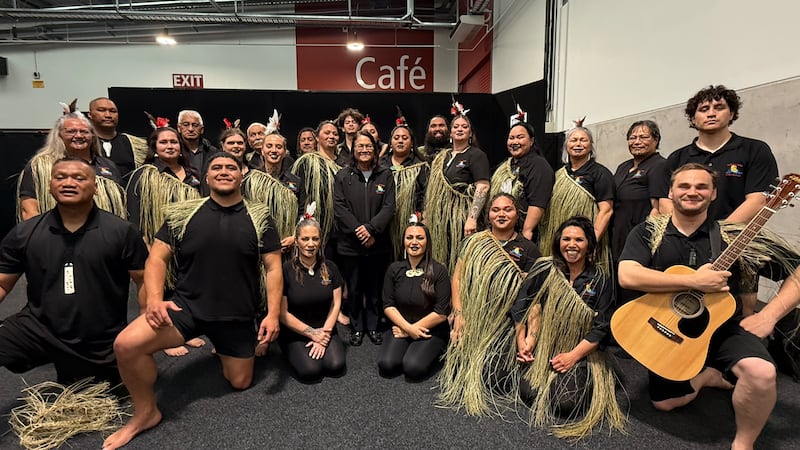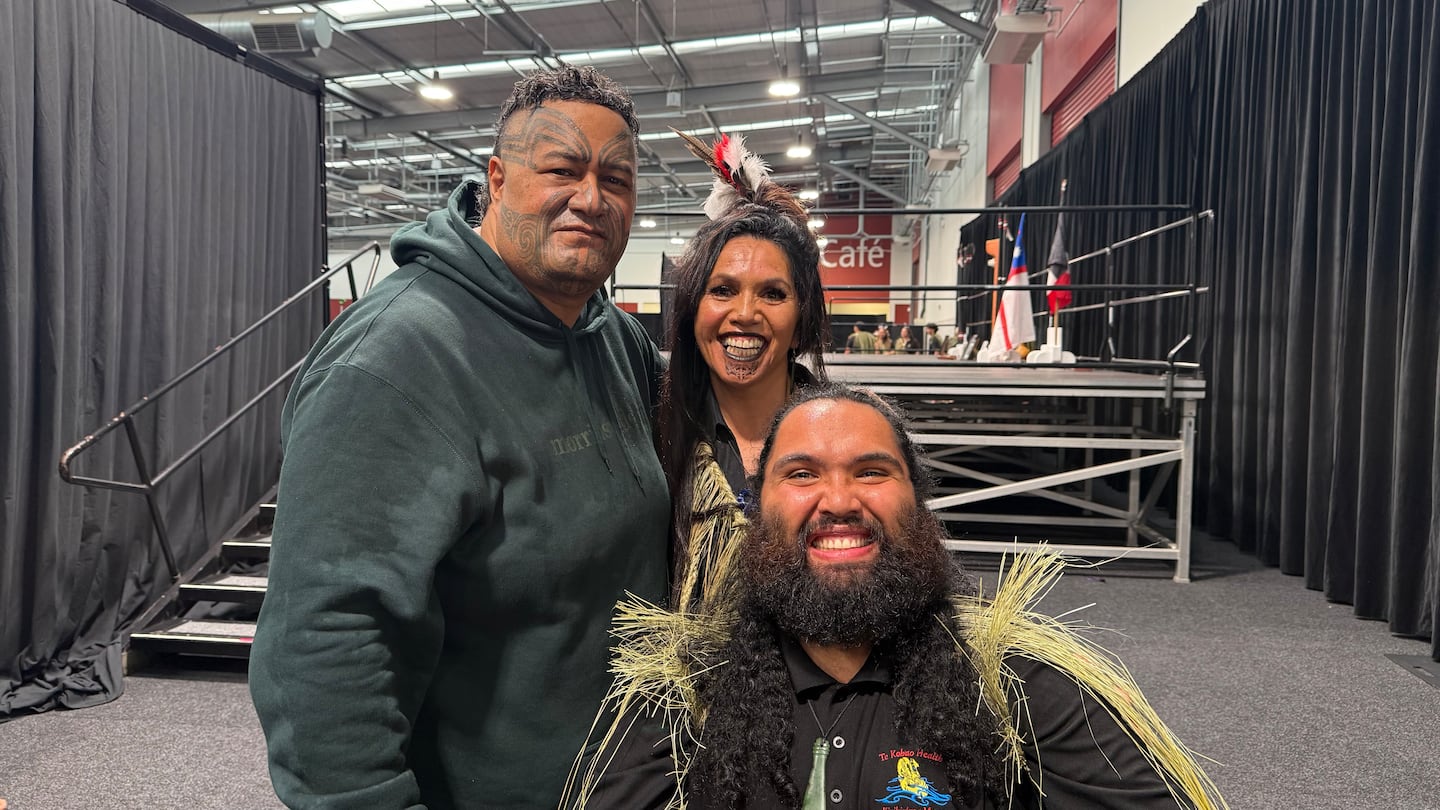An annual kapa haka competition involving hundreds of kaimahi working in family violence and sexual violence specialist support services is underway in Kirikiriroa.
Teams began taking to the stage on Friday at the Claudelands Exhibition Hall as the “kapa haka for healing” swung into action.
Many of the teams have been practising for upwards of two to three months for the popular event which has a special kaimahi focus.
“If we focus on the well-being of the workforce, which is through the medium of kapa haka, it’s another way of energising, of sharing knowledge and of sharing skills,” Te Pūkotahitanga co-chair and event organiser, Poata Watene (Waikato Tainui, Ngāi Te Rangi), said in a release.
Te Pūkotahitanga is an independent tangata whenua ministerial advisory group guiding Te Aorerekura, the national strategy to eliminate family violence and sexual violence in Aotearoa.
To involve as many kaimahi as possible, the competition is not following the usual “Matatini style” programme.
“We’ve removed the really tricky items like the poi, the mōteatea where performers express chants or poems, and the whakawātea, which is the traditional final performance and exit,” said Watene.

“The format has been designed to feature five items, each performed by a rōpū for 20 minutes, aiming to deliver a high impact kapa haka presentation.”
As well, effort has been made to ensure Pacifica are recognised.
“The beauty of it is that we also include a compulsory Pacifica item, honouring the invaluable contributions of Pacifica culture across our sector.”
A highlight of this year’s competition includes Ara Poutama Department of Corrections staff performing with some of the tāne in the agency’s special treatment unit.
“What’s missing within the sector is that we place so much emphasis on Western epistemology, Western structure, and Western construct around therapy when in actuality, kapa haka is another form of healing,” said Watene.
“You’re in your wairua environment - an empowering space where others uplift you and where you’re driven to set and surpass your own standards.
“You’re motivated and you’re encouraged to understand the content which comes from whakapapa - Kiingitanga.”
Watene emphasises the importance of a te ao Maori holistic understanding of well-being as CEO of Tuu Oho Mai, a Waikato-based community organisation working with whānau affected by family violence.
“It’s environmental wellness, it’s social wellness, it’s whānau fauna wellness - Toiora.
“What better way to express that [than] through song and a positive vibration through wairua.”



